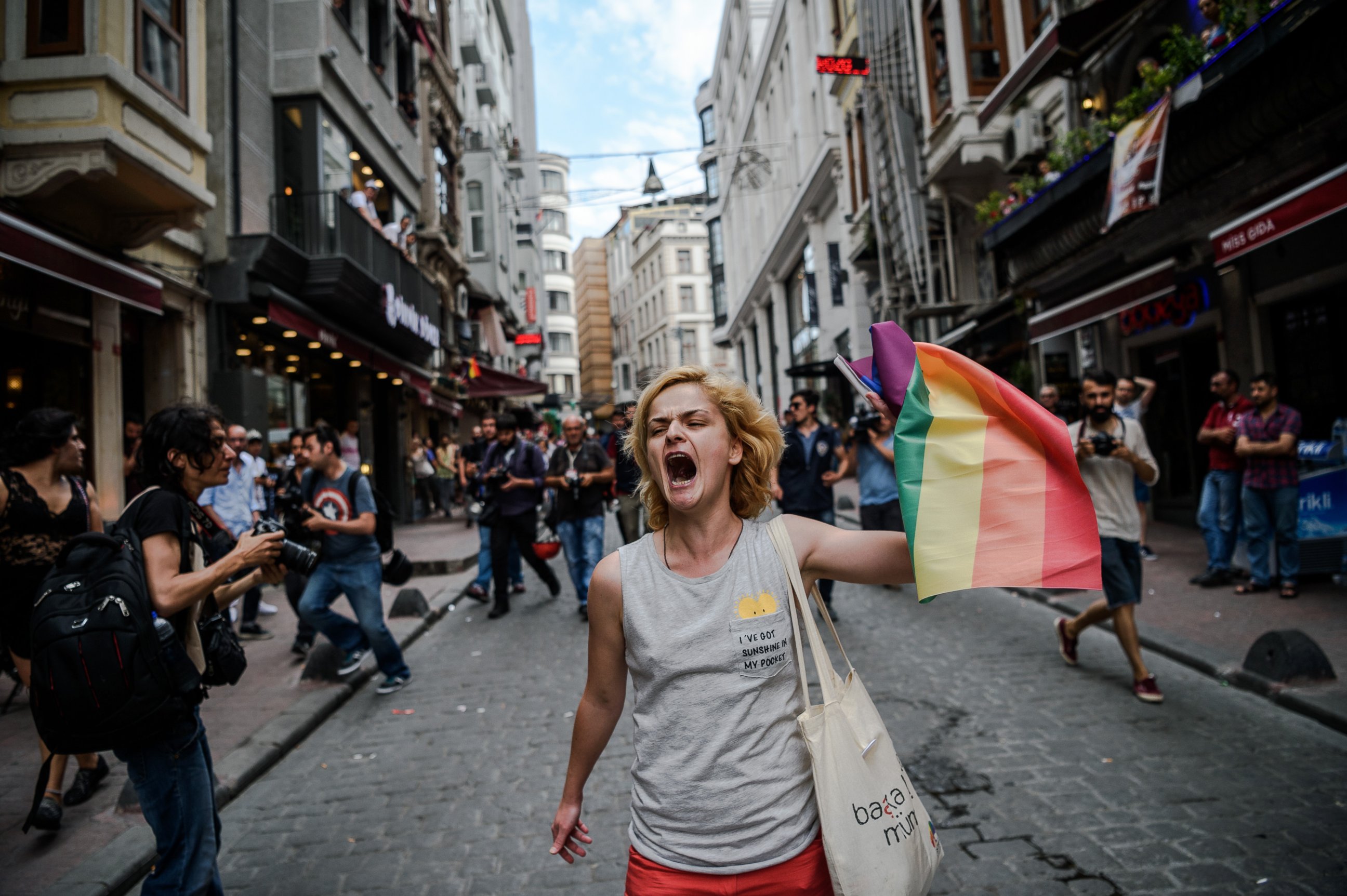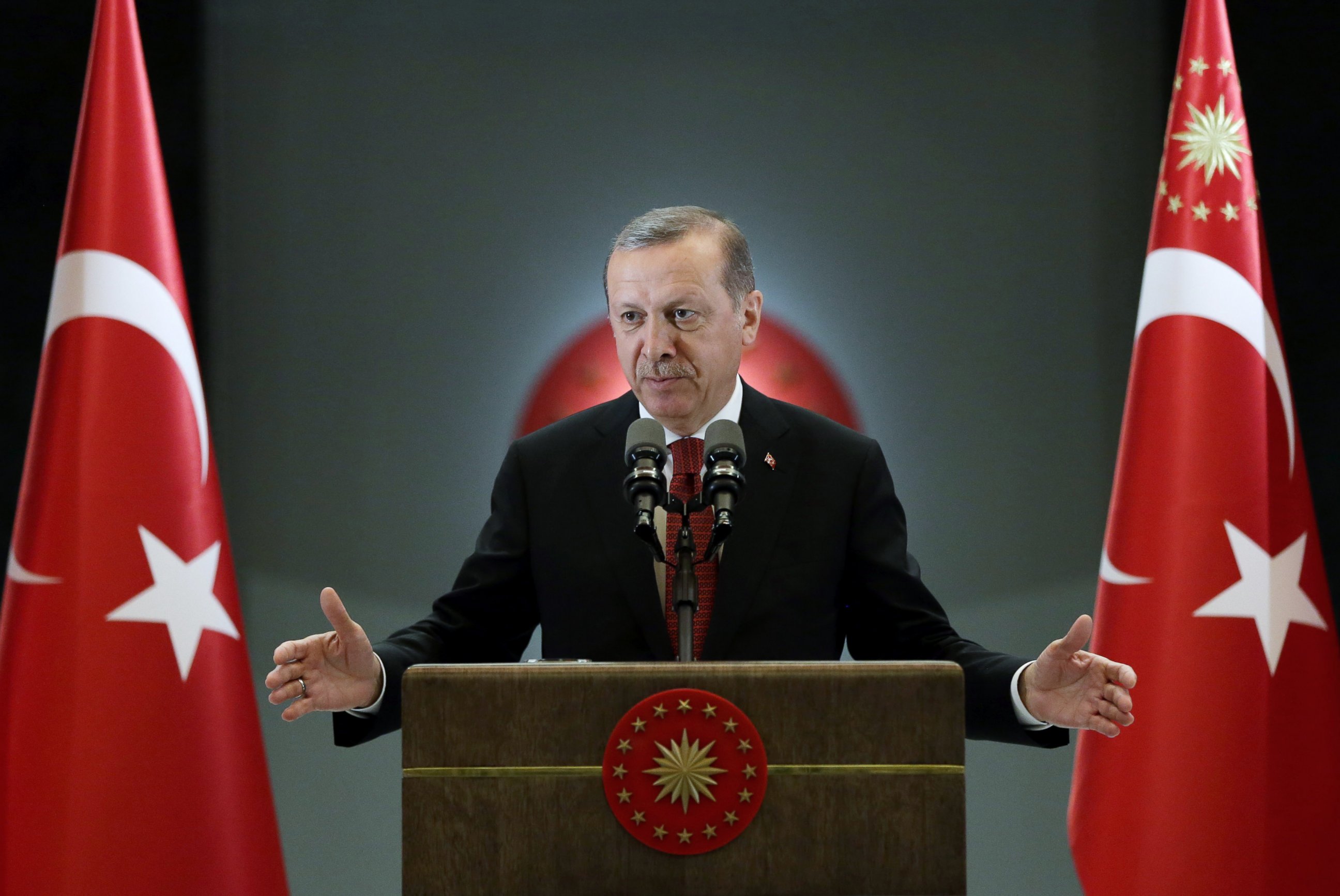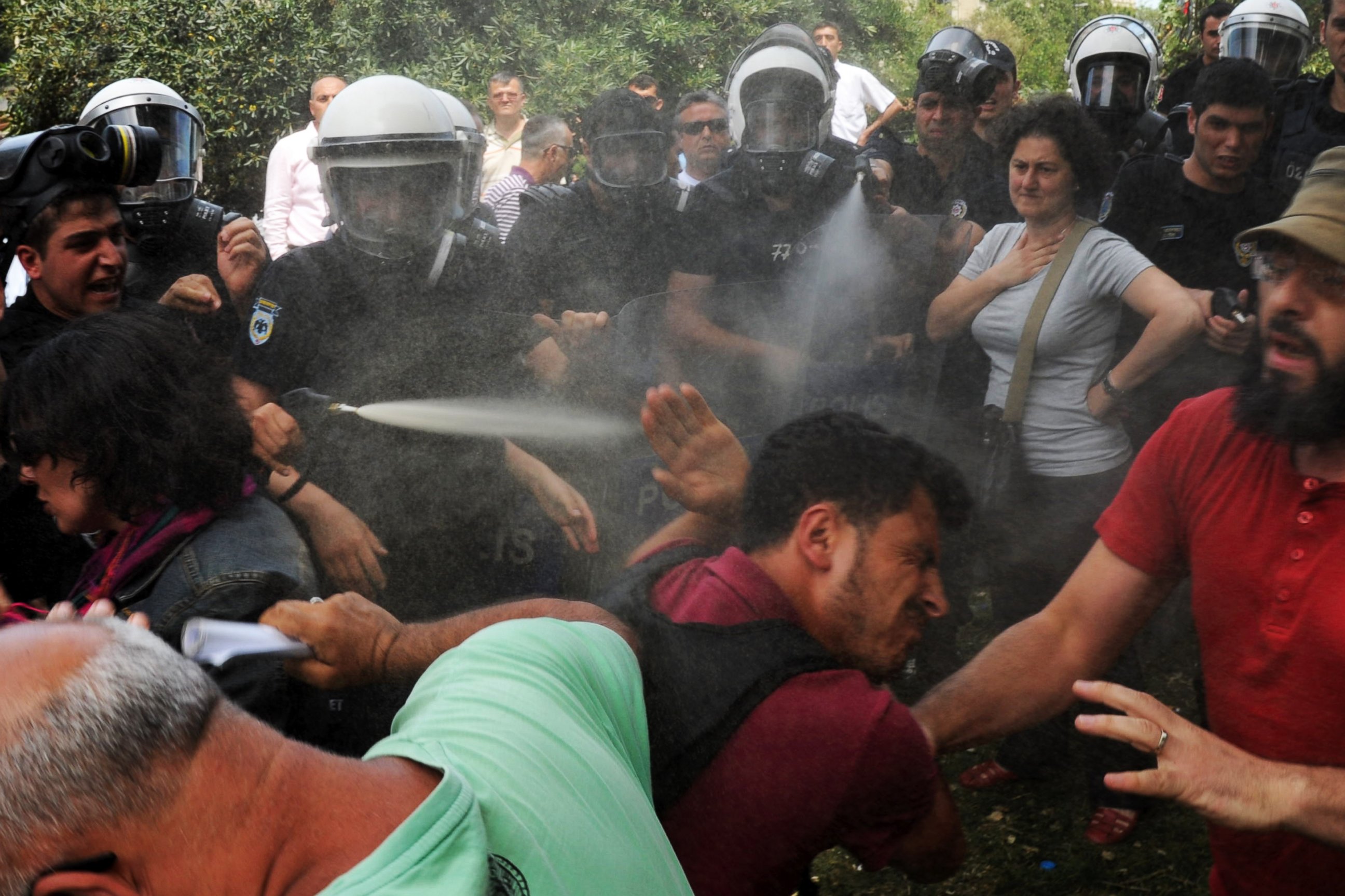Attack on Turkey Could Form Pretext to Further Civil Rights Crackdown
The attack comes at a unique moment in the country's history.
— -- The attack on Ataturk International Airport in Istanbul that left 41 people dead and 239 others injured, could be used as a pretext to further an ongoing civil rights crackdown in the country, according to experts who spoke with ABC News.
Turkish officials reportedly imposed a media blackout in the wake of the attacks, and social media users in Turkey confirmed to ABC News that Facebook and Twitter were shut down in the aftermath of Tuesday's coordinated attack on the airport, a tactic that was described by one resident as "standard protocol" following incidents of terrorism.
The political dynamic in Turkey is a fragile one today, largely because of the leadership style of Recep Tayyip Erdogan, according to Gönül Töl, the founding director of the Middle East Institute’s Center for Turkish Studies. Töl described Erdogan as an "autocrat" who came into power in 2002 on a wave of optimism among secularists and liberals, but seized greater control of the country in the years following 2011, when he was reelected for his third consecutive term.

According to Töl, citizens expected Erdogan to diminish an atmosphere of Islamic conservatism in the country. Early signs were positive, she said, as Erdogan strengthened ties with the European Union, and made efforts to recognize the country's long neglected Kurdish minority, who she estimates make up roughly 20% of the country.
But the 2011 election signaled the beginning of radical changes in Turkey that continue to define the country's political culture today.
Erdogan's party, AKP, grew in influence after the election, and the Turkish Army, considered by many to be a voice for secularism, declined in stature. Töl said that in addition to adopting a tone more associated with conservative Islamism, like the many controversial remarks he has made about women in recent years, Erdogan and his government have also taken greater control of Turkish media, virtually eliminating independent voices from public discourse in the country. Today, she said, Erdogan has cultivated a reputation for dictating the day's headlines directly to his media employees.
Social media platforms, naturally, are more difficult to control due to the profusion of different voices on them, so sites like Facebook and Twitter are frequently blocked in times of crisis, like after Tuesday's attack, or whenever the government wants to control the flow of information. Many Turkish citizens work around government censorship on social media through the use of VPN software, which enables them to access blocked websites by obscures the location of their IP address.
Another tactic that is employed, according to Töl, is the use of paid "trolls," who are hired to attack writers or social media voices that Erdogan's government considers to be too critical of his point of view. She said that she was a victim of paid-trolling attacks last month after an article she wrote for Foreign Affairs angered Turkish officials.
"After 2011, the true identity of Erdogan was revealed," she said.

Ege Seçkin, a senior political analyst for IHS in London, echoed many of Töl's points, and added that terrorist attacks increase the probability that such repressive tactics will be increased in measure.
"Like you have in the United States with policing terrorism," Seçkin told ABC News by phone, "there is a balance between liberty and security, and right now in Turkey, the balance is tilting to security."
Seçkin cited the evolution of the Gezi Park protests, a wave of liberal-minded demonstrations that initially began to contest the urban development plan of the Istanbul-based park in 2013, as an example of how anti-terror laws were being used to stifle critics of the Turkish government.
The protests, which resulted in bouts of civil unrest in Turkey, and remain a cultural touchstone for Turkish citizens in their efforts to oppose Erdogan, produced sporadic clashes between riot police and protesters that Seçkin explained has been used as a way for the government to dismiss any form of dissent out of hand as terrorism.
M.B., a Ph.D. student in Istanbul who spoke to ABC News under the condition that she remain anonymous as a way to protect her university from receiving backlash from the government, said she participated in the Gezi Park protests and has been active in protesting the government since. She called Erdogan's treatment of political dissenters "brutal" and said that despite his rhetoric condemning ISIS and ISIS-inspired attacks, he ultimately treated Islamic extremists more favorably than he did peaceful dissenters.

"Turkish security forces are brutal with peaceful protesters, and peaceful with ISIS brutes," she said in a phone interview.
M.B. described the political environment in Turkey as "worsening," with Turkish residents being caught between the violence of groups like ISIS and a government that uses that violence as a way of robbing them of free press and basic civil liberties.
"It feels like we're living in hell here," she said, referring to Tuesday's attack and its potential political aftermath. "And we haven't even hit rock bottom yet."




